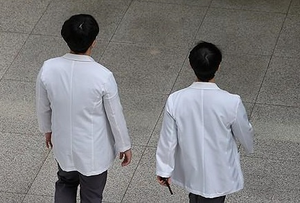Seoul, (Asian independent) The month-long confrontation between the South Korean government and doctors was feared to worsen further as medical school professors were to tender mass resignations and cut back on patient care starting March 25, while the government was to suspend the licenses of striking trainee doctors, officials said on Sunday.
More than 90 per cent of the country’s 13,000 trainee doctors have been on strike in the form of mass resignations for about a month to protest the government’s decision to increase the medical school enrollment quota by 2,000 seats from the current 3,058 starting next year to enhance health care services in remote areas, as well as essential but less popular medical disciplines.
Joining the collective action, professors of medical schools nationwide will begin to submit their resignations Monday and will reduce their weekly work hours to 52 hours by adjusting surgeries and other medical treatments, according to the national medical school professors’ council.
Starting April 1, they will also “minimise” medical services for outpatients to focus on seriously ill patients and emergency patient care, reports Yonhap News Agency.
The professors have called on the government to withdraw the plan to drastically raise the medical school enrollment quota and come forward for dialogue.
“Our decision to resign and reduce outpatient care was to ensure safe treatments for inpatients and those with serious cases,” a council official said. “Even after tendering our resignations, we will do our best to treat patients until the resignations are accepted.”
Undeterred by such moves, the government has vowed to take action “in accordance with law and principles,” stressing that the planned increase of medical students by 2,000 was not a matter of negotiation.
The government has been taking due administrative steps to suspend the licenses of striking doctors as they missed a government-set deadline to return to work late last month, and the suspension will take effect Tuesday for some.
Under South Korea’s medical law, doctors refusing the state back-to-work order could face a minimum three-month suspension, as well as indictments from the prosecution.
The prolonged deadlock has worsened medical service disruptions.
An association of critically ill patients has urged the government to come up with “practical solutions” and appealed for doctors to use restraint, saying the walkouts by professors under the current circumstances equal “a death sentence” for patients.
The government plans to deploy 247 more military surgeons and public health doctors at strike-hit hospitals to bring the total number of such medical staff to 413.
It also seeks to hire senior doctors who have retired to minimise the chaos.
The government is pushing to increase the admission quota to address a shortage of doctors, particularly in rural areas and essential medical fields, such as high-risk surgeries, pediatrics, obstetrics and emergency medicine.
Given the rapid population aging and other issues, the country is also expected to fall short of 15,000 doctors by 2035.
But doctors argue that the quota hikes would compromise the quality of medical education and services and create a surplus of physicians, and the government must devise ways of better protecting them from malpractice suits and extending compensation to induce more physicians to practice in such “unpopular” areas.








